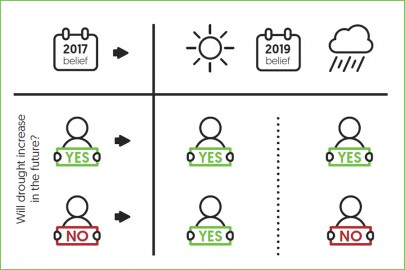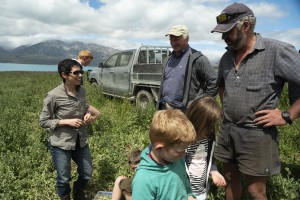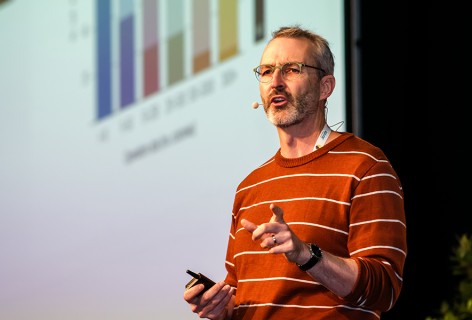Tracking climate change awareness among rural decision-makers

Changes in expectations of droughts increasing in the future are dependent on experiences of recent dry or wet weather
The latest results of the biennial Survey of Rural Decision Makers (SRDM), run by scientists at Manaaki Whenua, show that farmers are more aware than ever of the risks of climate change on their activities.
The SRDM is now the largest and longest-running survey of decisionmaking in the primary sector in New Zealand. Results from the SRDM have become conventional wisdom in policymaking circles. It also has a sizeable panel component, enabling longitudinal analysis of policy. With between 3,000 and 5,000 farmers, foresters, growers, and lifestyle block owners from Cape Reinga to Bluff taking part in each wave, the survey records current practice and future planning across the breadth of the primary sector.
Most respondents to the latest survey believe climate change is already affecting New Zealand, and roughly three-quarters anticipate that the frequency or intensity of drought, heat waves, flooding, and storms will increase in the future.
Encouragingly, most farmers, foresters, and growers have introduced management practices to mitigate climate change effects, such as changing stock rates, planting native trees, increasing feed reserves, changing stock breeds, investing in infrastructure to stop flooding, and increasing water storage. Of note, most farmers would rather plant indigenous trees, but feel that the poor rate of return is a barrier.
In work linked to the survey, our scientists investigated the drivers behind this increased awareness of climate issues, using experience of drought as an example of a climate change event. This work showed that farmers most strongly refer to the past 5 to 10 years rather than the longer historical record when evaluating a drought’s intensity. This may create future problems, because if, for example, an area experiences a few ‘good’ years amid a prolonged drought, people are less likely to adapt to the overall change. This is an important finding for effective policymaking: policies and guidance for farmers that rely on increasing perceptions of risk to spur them to act may overestimate how much risk farmers actually perceive.


